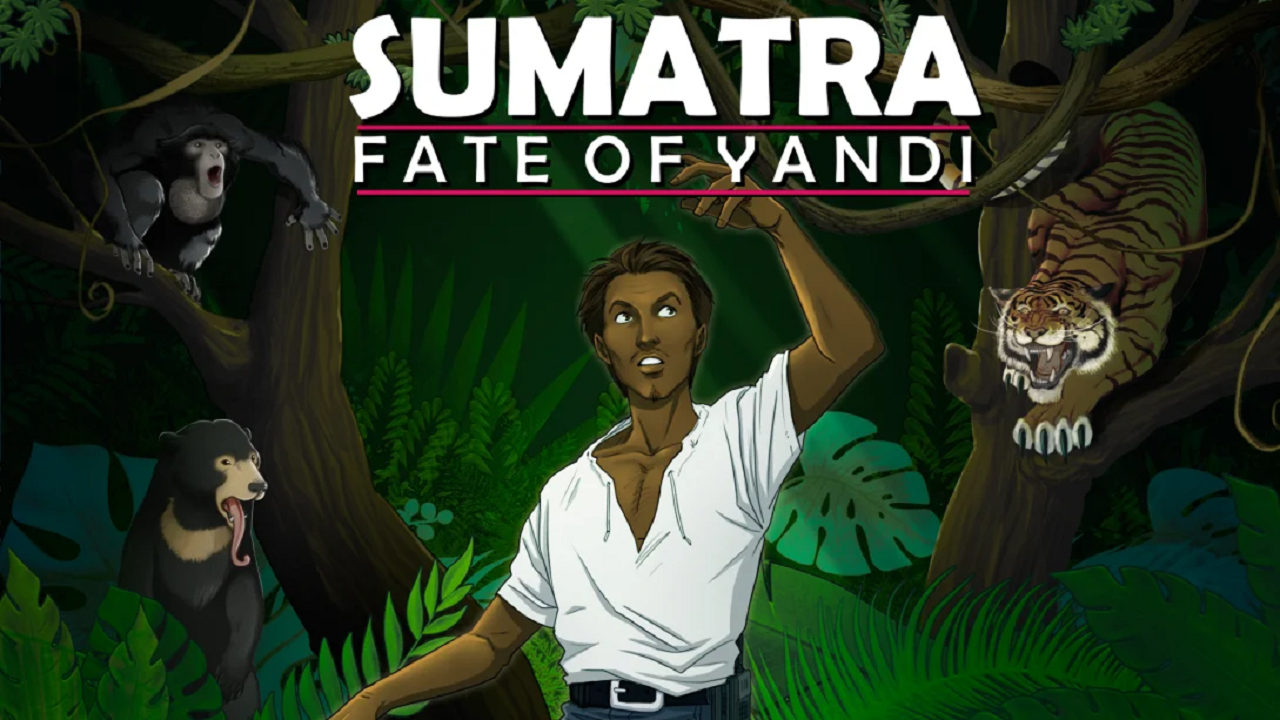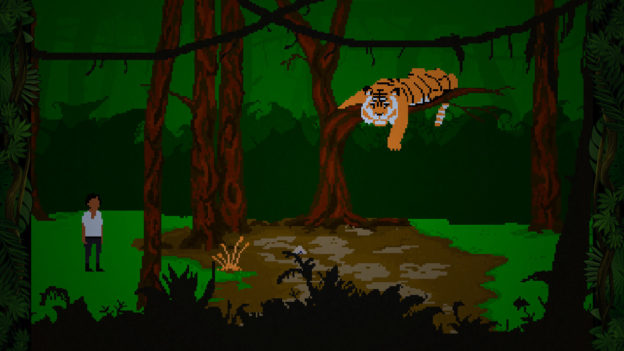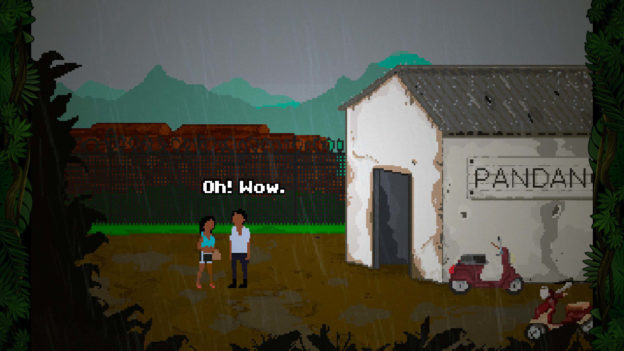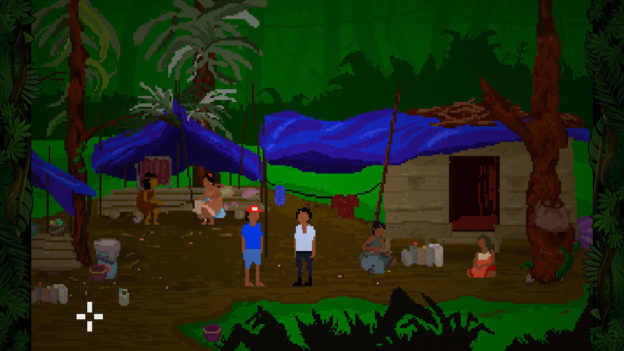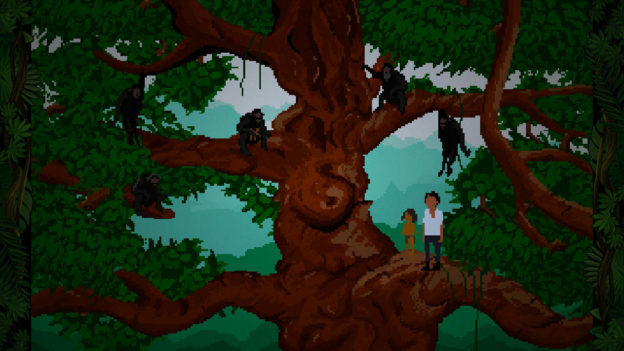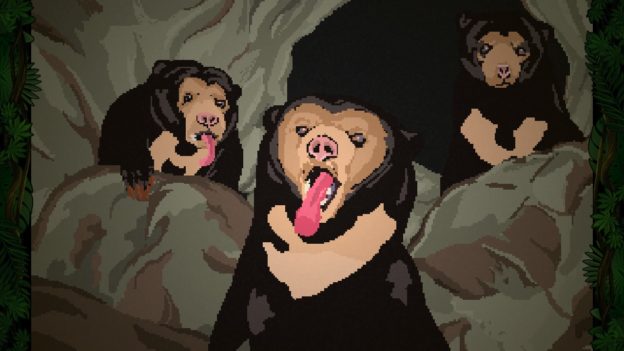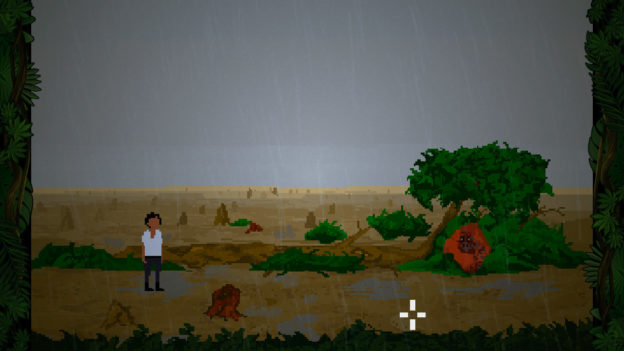Sumatra: Fate of Yandi will go through the expected motions if you’re a fan of point-and-click games. But it feels like a game that needed more time to fully develop the themes it was aiming for.
What starts off as an escape from a Sumatran jungle soon shifts tones. While it advertises a “storyline that evolves in unexpected ways,” unexpected doesn’t necessarily equal appealing. It takes some mature directions – as well as dropping an immature f-bomb – but the game isn’t long enough to see these realized in satisfying ways. I beat the game in just over four hours, playing at a very leisurely pace. The content is acceptable for the regular price of $6.99; it’s more a question of story development.
In fairness, the dev tried to get me invested in the plot through flashback scenes of Yandi and his wife. But I found myself not interested enough to genuinely care. This was cemented by the final act, which I won’t spoil, but whose tonal shift was equal parts dark and goofy. Was the game about Yandi’s “fate,” or was he more of a supporting character?
What might’ve aided the storyline was if Yandi had more things to interact with. But many of the jungle screens have little to click on. The few indoor locales seem to correct this, but it’s a simplistic approach overall. There’s also no voice work. While not unexpected for a budget game, it means the writing needs to be even stronger. In this case, I think the shorter length lead to less developed characters.
At least the puzzles were good for the genre. The standout section came fairly early when Yandi had to earn the trust of various villagers—encountering other humans after solo wanderings livened up the affair. It was also satisfying to discover how to help each villager and the best order to do so.
One aspect that bummed me was the soundtrack. I found the music generally soft and often nonexistent. Why were so many sections silent? I struggle to recall the tunes, which I fear might be my outcome for this game as a whole.
Sumatra: Fate of Yandi offers good point-and-click puzzles, but I found the tonal shift in its tale unappealing. I think the game isn’t long enough to be thought-provoking in the way intended. While I saw enough good things here that I’ll keep an eye out for the devs future point-and-click games, they might be better served by lighter plots to match the shorter lengths.
Review: Sumatra: Fate of Yandi (Nintendo Switch)
Fair
Sumatra: Fate of Yandi offers good point-and-click puzzles, but I found the tonal shift in its tale unappealing. I think the game isn’t long enough to be thought-provoking in the way intended. While I saw enough good things here that I’ll keep an eye out for the devs future point-and-click games, they might be better served by lighter plots to match the shorter lengths.

